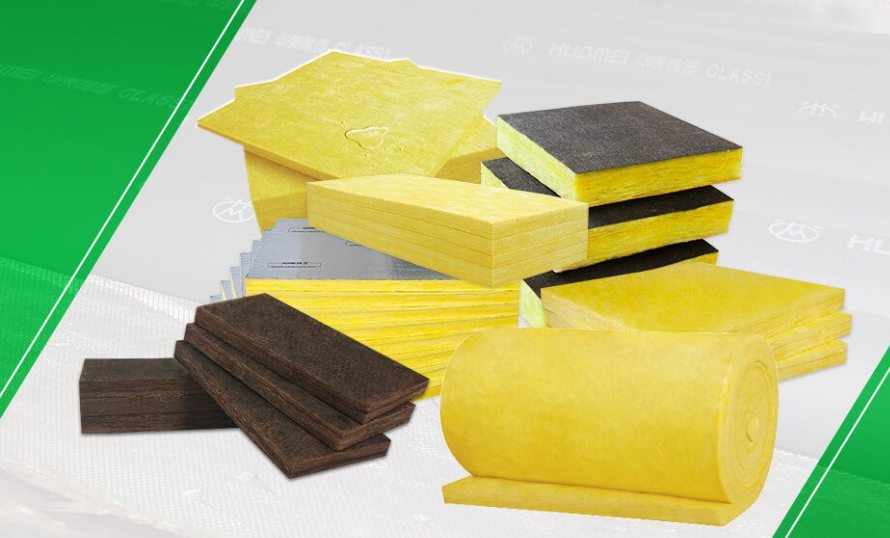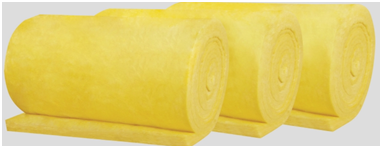E-mail: marketing@hbhuamei.com

A well-insulated roof is a key element in maintaining energy efficiency and comfort within a building. Among the various insulation materials available, glass wool has emerged as a popular choice for roof insulation due to its exceptional thermal properties and ease of installation. In this article, we delve into the benefits and applications of glass wool for roofs, highlighting its role in enhancing energy efficiency and creating a more sustainable living environment.
Glass wool, composed of fine glass fibers, is a lightweight and versatile insulation material used to prevent heat transfer between the interior and exterior of a building. As concerns about energy conservation and environmental sustainability continue to grow, the demand for efficient insulation solutions has led to the increased use of glass wool in construction, especially for roof insulation.
Superior Thermal Performance: Glass wool's high thermal resistance makes it an ideal choice for roof insulation. Its low thermal conductivity minimizes heat transfer, keeping interiors cooler in summer and warmer in winter.
Acoustic Insulation: In addition to thermal insulation, glass wool possesses excellent sound-absorbing properties. This makes it an effective material for reducing external noise, enhancing indoor comfort.
Lightweight and Easy Installation: Glass wool's lightweight nature simplifies the installation process. It can be easily cut, shaped, and placed within roof structures, reducing labor and installation time.
Fire Resistance: Glass wool is inherently fire-resistant, providing an added layer of safety to the building.
Eco-Friendly: Made from recycled glass and natural minerals, glass wool is considered environmentally friendly. Its manufacturing process consumes fewer resources and produces less waste compared to other insulation materials.
Glass wool finds extensive application in various types of roofs, including pitched roofs, flat roofs, and sloped roofs. It is placed between the roof structure's supporting elements, preventing heat exchange between the interior and exterior environments. Glass wool can be used in residential, commercial, and industrial buildings, offering consistent thermal and acoustic insulation benefits.
Proper installation is essential to maximize the benefits of glass wool insulation. Here are a few key considerations:
Safety Measures: Installers should wear protective clothing, gloves, and masks to prevent irritation from glass fibers.
Vapor Barrier: Incorporating a vapor barrier can prevent moisture from seeping into the insulation material, maintaining its effectiveness.
Sealing and Compression: Ensure proper sealing and compression of glass wool to avoid gaps and maintain insulation integrity.
In an era where energy efficiency and environmental consciousness are paramount, glass wool insulation stands as a powerful solution for roofs. Its remarkable thermal and acoustic properties, coupled with its eco-friendly nature, make it an attractive choice for a wide range of buildings. By investing in glass wool roof insulation, we take significant strides towards creating more energy-efficient, comfortable, and sustainable living and working spaces.

Huamei Energy Saving Technology Group is situated within the central zone of the Beijing-Tianjin-Hebei Province. The group boasts a network of seven branches and ten production facilities spanning four provinces across China. Its specialization lies in the manufacturing of rubber foam insulation materials, glass wool products, extruded polystyrene insulation boards (XPS), and various other thermal insulation solutions. The production capacity for rubber foam insulation materials exceeds 1.7 million cubic meters, fiberglass wool products exhibit an annual production capacity surpassing 400,000 tons, and extruded polystyrene thermal insulation boards (XPS) achieve an annual production capacity exceeding 500,000 cubic meters. In alignment with the global drive for energy conservation and environmental protection, coupled with its cutting-edge production techniques and robust industry advantages, Huamei has successfully attained its aspiration of emerging as a regional pioneer in eco-friendly building solutions.
Please contact us for product catalog and quotation!
Copyright © Huamei Energy-saving Technology Group Co., Ltd. All Rights Reserved | Sitemap | Privacy Policy
Insulation solutions LIST: Insulation solutions LIST